For news and photos from our 2010 Women's Health Workshop, click here. |
|---|
Taratra Reny sy Zaza was formed in 2008 by the traditional midwives, mothers, and young women of Mahatsinjo, a small set of villages within Tsinjoarivo Commune. Our name means "Shining Light, Mothers and Children". The mission of our group is to promote women and children’s health in Mahatsinjo, by: 1) defining local and regional challenges in education, health care and economic empowerment, 2) identifying opportunities to strengthen and implement cost-effective community actions that improve women’s levels of education and health, and 3) fostering innovative new ideas through sharing of experiences on regional, national and international levels. The Mahatsinjo community is at an agricultural frontier and is literally within the rainforest. Most of our members are deeply entrenched in a rural existence, living in small mud houses and farming rice, potatoes, corn, cassava and sweet potatoes on small, unofficial landholdings. Very few local women finish primary school (many are pulled out of school to care for their siblings or to do household chores), and most start having children around the age of 14 (some at 11 or 12). While the average country-wide fertility for women is 5.1, in rural Madagascar this average is 8-10 (the maximum in our local region is 18). Our members are not presently represented in local government, and do not have many available sources of income. SADABE and Taratra work together to achieve our goals and achieve our common aims of improving the state of human and ecosystem health at Tsinjoarivo. |
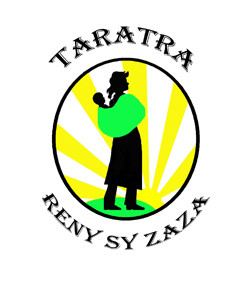 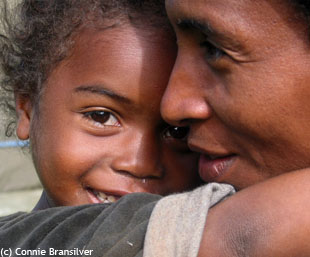 |
|---|
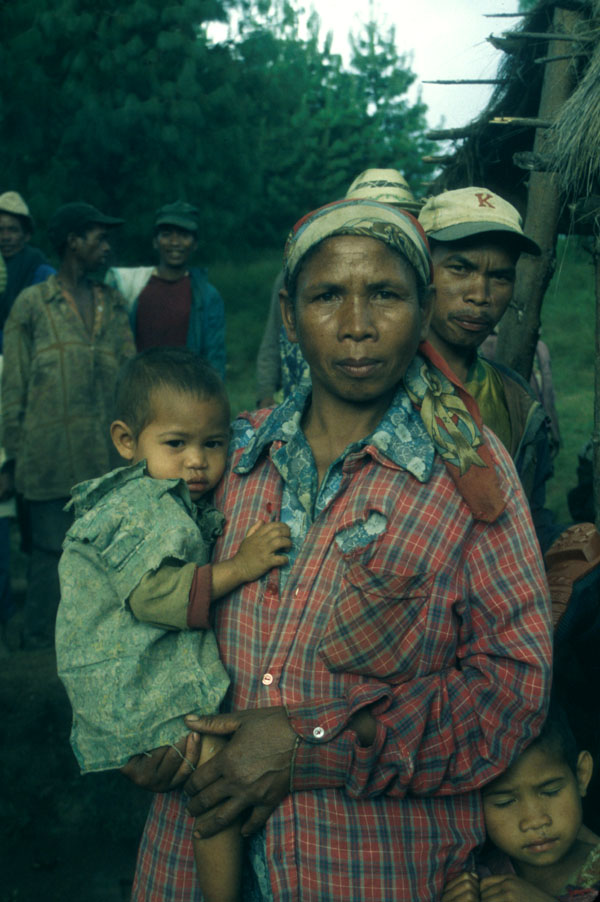 |
Past Accomplishments2010 Women's Health Workshop - In September 2010 Taratra and SADABE hosted a four-day international workshop to promote women's and children's health at Mahatsinjo. We were pleased to have the support of three health care workers from Canada, and accomplished training, discussion groups and baseline health data collection. For more information, click here. Assisting births - Four of our members are local traditional midwives and have been responsible for assisting almost all of the births in the region for many years (virtually all births in this region occur at home). We plan to continue this oral tradition, formalize it within our association, and provide material support and training to local midwives. Informational/Planning Meetings - In 2008 we held four educational days: 1) family planning, 2) breastfeeding, 3) nutrition, and 4) general health and disease prevention. These education days had three goals: (1) our International Coordinator shared current western knowledge and practices, (2) the officers and members discussed and recorded the current local practices, and (3) the whole team worked to identify areas of most pressing need, and areas in which interventions would be most useful. The International Coordinator facilitated the donation of vitamins, male and female condoms, and children’s raincoats to more than 30 of our members in the Mahatsinjo region. Dental Clinics - In 2007 and 2008 our organization co-hosted a Madagascar Ankizy Fund dental clinic, including dentists, dental students and dental assistants. Each year, during an 8-10 day clinic the team treated over 200 patients from our region and surrounding areas. The team provided extractions of teeth that were badly decayed, restorations for teeth with minor decay, endodontic reconstructions (root canals), and instruction in oral health. They also collected data on dental health, which will be useful in planning future missions. |
Present and Future InitiativesPromoting Health – We will strive to increase the average health of Malagasy women and their young children at Mahatsinjo in several ways. First, we will use formal training and education to raise awareness of health issues, and highlight potential low-tech solutions already available. Second, we will organize national and international workshops to bring experts in women’s health into engaging dialogue with the local population. This will involve health professionals from urban areas in Madagascar, as well as abroad. Third, we will seek ways to improve the existing hospital at Tsinjoarivo (15 km from Mahatsinjo) and work towards building a new health care facility at Mahatsinjo. Promoting Women’s Education – Children of both sexes, but especially girls, are severely under-educated at Mahatsinjo. Only rarely do children finish primary school (roughly six years), and even more rarely does anyone attend a secondary school (the closest one is 15 km away). We will continue to support the local public school, working with the Madagascar Ankizy Fund, to improve the educational environment, and seek funding for scholarships that would help women attend secondary school. We also seek ways to practice English language (which will be useful in coming ecotourism initiatives). Promoting Environmental Health – The health of Mahatsinjo's women depends on an intricate balance between natural resource availability and resource exploitation. The family farms at Mahatsinjo were laid out without formal planning, land tenure, or government assistance. Roughly half of the land remains cloaked in rainforest, but the forest resources are often used unsustainably. Experts agree that rural Madagascar faces a turning point – better management of natural resources or an inevitable decline in ecosystem and human health. In collaboration with SADABE we will promote sustainable resource use and environmental stewardship. This includes our reforestation initiative, that includes both native rainforest trees (to replenish natural resources and prevent erosion) and fruit trees (to improve overall health through better nutrition). Promoting Entrepreneurial Businesses – We are seeking new and creative ways to develop sustainable local industries that would relieve poverty. One potential avenue is to profit from the tourism and ecotourism that is already well established elsewhere in Madagascar, by developing primate ecotourism and cultural tourism in association with SADABE. We also plan to develop local skills we already possess (e.g. craft making and carving) as well as new sustainable activities (e.g. jam making) to create new opportunities for women to support themselves and their families. Other options include agricultural co-operatives, whose products would be destined partly for sale and partly to improve local nutrition. |
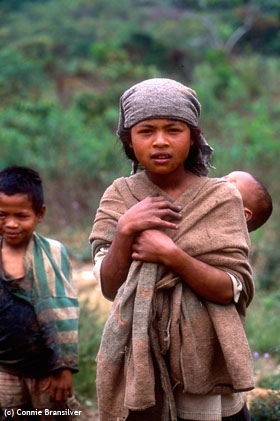 |
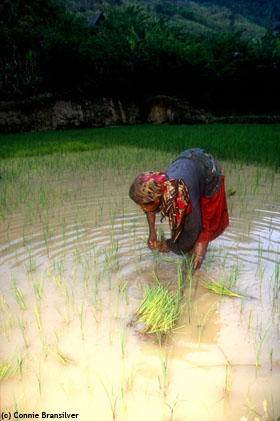 |

